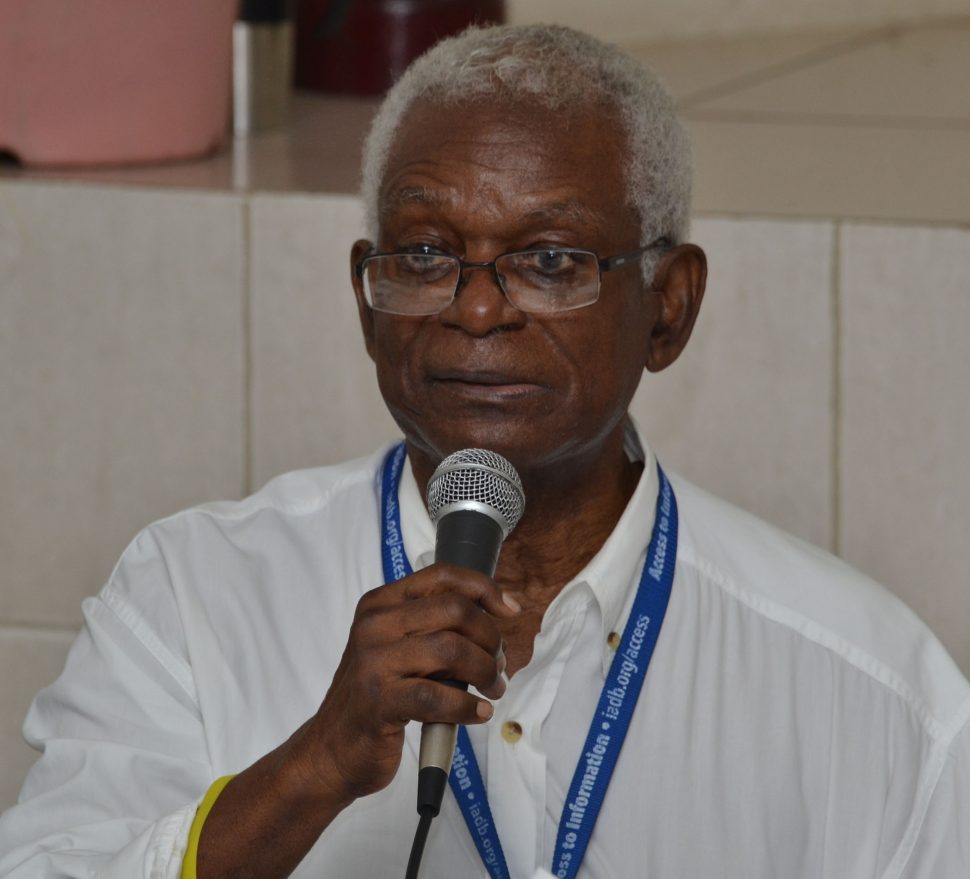The State Assets Recovery Agency (SARA) has interviewed several “major players” in its ongoing probe of the awards of oil blocks near to Exxon-Mobil’s Stabroek Block, and should it uncover any malfeasance, it will push for the recovery of the blocks and have them auctioned, the agency’s Director, Professor Clive Thomas says.
“Yes. That is what SARA wants ultimately because we think we will get more money from that [auctioning]. I think the best way to handle the sale of the oil blocks is through public auction,” Thomas told Stabroek News in an interview last week.
In May, New York-based Bloomberg News revealed that Thomas had confirmed that an investigation was launched into the awards of the blocks. Thomas subsequently told this newspaper that it was specific information from several “whistleblowers” that sparked the investigation, which began a year ago, into the issuance of about 20 oil exploration licences here.
Stabroek News had previously reported that days before the May 11th, 2015 general and regional elections, in which the PPP/C was voted out after over two decades in power, then President Donald Ramotar had signed a contract with JHI and Associates (Guyana) Inc for the Canje Block offshore Guyana. Mid-Atlantic Oil & Gas Inc and ExxonMobil, which is Block Operator, also have participating interests in the Canje Block. In February of last year, French oil major Total announced that it had bought a 35% working interest in the Canje Block, in an agreement it signed with both JHI and Mid-Atlantic Oil & Gas Inc. The two companies, it said, will retain a shared 30% interest alongside operator ExxonMobil.
Ramotar had told Stabroek News that the then Minister of Natural Resources Robert Persaud had made a case for JHI and Mid-Atlantic Oil and Gas Inc.
Just prior to the 2015 elections, Ramotar had also signed an agreement with Ratio Energy Limited and Ratio Guyana Limited for the Kaieteur Block. He has said that his award of contracts to the companies shortly before the elections should not be seen as questionable.
Concerns about the deals relate to whether there had been advance knowledge of Exxon-Mobil’s major find, the first of which was made shortly before the elections, and whether that information had been used to tie up new deals.
Thomas informed that while Persaud had not yet been questioned, the agency planned to speak with all the “major players” as the investigations continue.
“Investigations are continuing. We have investigated some of the participants in the process. That investigation is ongoing. It is a matter of some priority because of the sums involved. It would take priority over the [sale of GuySuCo’s transmission towers] case because of the size, because Guyana has a lot of money to get back if the blocks go on auction as against remaining the product of one-to-one sale,” he said.
“We are speaking to the individuals. We have interviewed some here, we have interviewed some at their premises. We are investigating in effect, I don’t want to call names because I don’t want people to feel that everybody we interview is a crook. We are just interviewing to get information at this time. We have interviewed some of the major players in the matter and we continue that process,” he added.
Questioned if former natural resources minister Persaud has been interviewed, Thomas said no. Probed on whether he will be interviewed, Thomas replied, “I don’t need to answer that question. Anybody who is a major player we will hope to interview.”
The SARA chief said that while he understands that some of the companies have already sought buy-ins and others have begun exploration of the blocks awarded, it will not hinder the investigation process.
“Yes, we know that [some companies have begun drilling], but these companies have to obey laws that are local and international. They, being in Europe, United States, Canada, Israel and elsewhere…they are subject to the laws of those jurisdictions and they can’t be trading on stuff with public trust not being completely satisfied as regards to the laws and requirements. So it is not local alone, it is international interest,” he said.
Thomas emphasised that “unlawful conduct has to be established before we can act” and said that the investigations could take a long time.
“The process could take forever and it could be that there is no unlawful conduct. We don’t know. That is the nature of investigations. Right now, I can’t say that unlawful conduct has taken place. We have to establish that by law,” he said.
“We are an investigative agency working on the rules of civil law not criminal law. So we have to establish, in some form of civil law, that these people created unlawful conduct,” he added.





